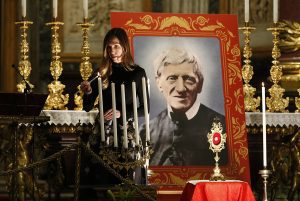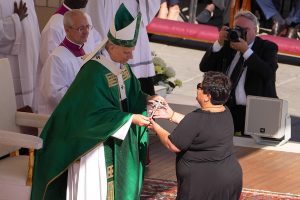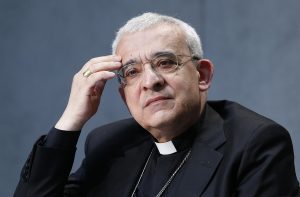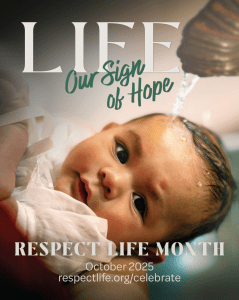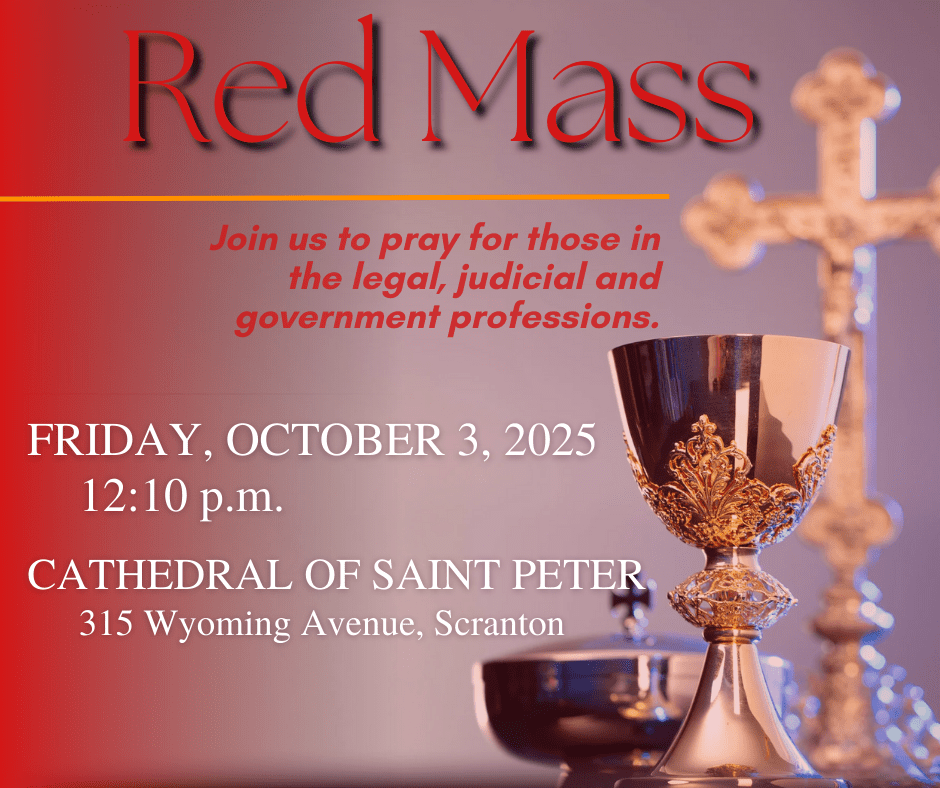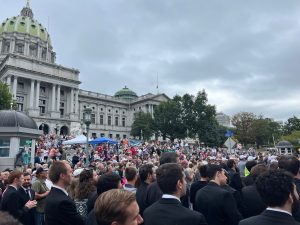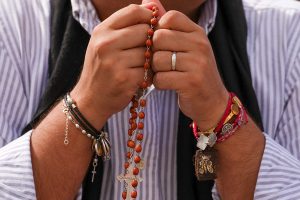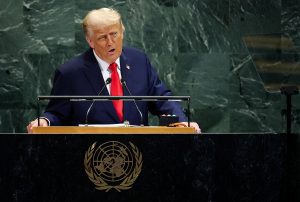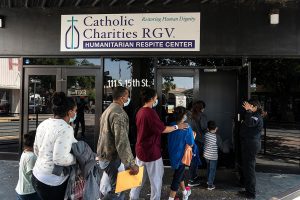(OSV News) – Catholic bishops are expressing their sorrow over a deadly attack at a Michigan house of worship, which took place just weeks after a mass shooting at a Minnesota Catholic church.
At least four were killed when a gunman drove his truck into the Church of Jesus Christ of Latter-day Saints in Grand Blanc Township, Michigan, during a Sept. 28 service, then set the church building on fire while shooting with a semiautomatic rifle into the congregation.
Eight victims remain in the hospital, with one in critical condition.
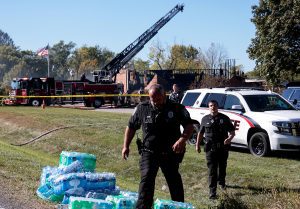
There may be more victims. In a Sept. 28 press conference following the attack, Grand Blanc Township police chief William Renye said, “We do believe we will find additional victims once we have that scene secured.”
The suspect, 40-year-old Thomas Jacob Sanford of Burton, Michigan, died in a shootout with law enforcement. Investigators believe an accelerant was used in the fire, which gutted the chapel. They also found three improvised explosive devices linked to Sanford, a former Marine and Iraq War veteran.
Survivor Brian Taylor — who spoke to media immediately afterwards while still wearing his bloodstained shirt — told ABC Detroit affiliate WXYZ that the gunman had been dressed in camouflage as he opened fire.
A motive for the attack remains unknown, although Reuben Coleman, acting special agent in charge for the FBI’s Detroit field office, told media Sept. 28 that his agency “is investigating this (the attack) as an act of targeted violence.”
Authorities are also looking into whether the shooting’s timing was connected to the passing of Russell M. Nelson, the president of the Church of Jesus Christ of Latter-day Saints, who died peacefully at his Salt Lake City home Sept. 28. Nelson, who had been a respected heart surgeon, was 101 years old.
In a statement provided to OSV News, Bishop Earl Boyea of Lansing, Michigan, in whose diocesan territory the Grand Blanc congregation is located, assured the Latter-day Saints congregation of his prayers and “assuring those who mourn, and those who are injured” of his “solace and support.”
“Any place of worship should be a sanctuary of peace,” Bishop Boyea said Sept. 29. “The violation of such a haven, especially upon a Sunday morning, makes yesterday’s act of mass violence even more shocking. I commend the first responders for heroically assisting at the scene and for working to safeguard other local places of worship.”
In a Sept. 29 statement posted to his X account, Archbishop Edward J. Weisenburger of Detroit said he was “heartbroken” by the attack.
“In this time of immense sorrow, I ask that we stand in solidarity with the victims, their families, and the Church of Jesus Christ of Latter-day Saints,” he wrote. “Let us pray for peace and stability in our world and let us commit ourselves to actions that help to create that peace.”
Bishop Robert J. Brennan of Brooklyn, New York, posting on X Sept. 28, said the attack was “beyond disturbing.”
“We pray earnestly for those who died and were injured, for their families and for all those who were gathered on a Sunday morning to pray,” he added.
Archbishop Bernard A. Hebda of St. Paul-Minneapolis noted in a Sept. 28 statement that the Catholic and LDS communities now share a common sorrow.
“Just last month, the regional leadership of the Church of Jesus Christ of Latter-day Saints extended their sincere condolences and prayers to the faithful of this Archdiocese in the aftermath of the shooting at Annunciation Church, expressing their closeness to us at that challenging time,” said Archbishop Hebda, referencing the deadly Aug. 27 targeted attack that killed two children and injured 21 other individuals during a school liturgy at a Minneapolis parish.
“I will be promising them our prayers for those who were killed, as well as for those who were injured, their families, and all who present in that House of Worship,” said Archbishop Hebda. “Please join me in praying for them and for an end to senseless violence around the globe.”
In a Sept. 28 post on his platform Truth Social, President Donald Trump — noting he had been briefed on the incident — said, “This appears to be yet another targeted attack on Christians in the United States of America.”
While members of the Church of Latter-day Saints, sometimes in the past referred to as Mormons, call themselves Christians, the Catholic Church holds that the Latter-day Saints’ teachings about the nature of God, Jesus Christ and baptism fundamentally diverge from the trinitarian Christianity handed down from the apostles.
While Catholics believe the Father, Son and Holy Spirit are three persons in one God, Latter-day Saints view the Trinity consisting of three separate gods with the Father above all, and the Son and the Holy Spirit respectively subordinate. Catholics understand Jesus as the incarnate Son of God, while Latter-day Saints do not regard Jesus as one with the Father in either nature or substance.
Despite crucial doctrinal differences, however, members of both faiths “often find themselves working together on a range of problems regarding the common good of the entire human race,” wrote then-Father, and now Cardinal, Luis Ladaria, in a 2001 Vatican document. “It can be hoped therefore that through further studies, dialogue and good will, there can be progress in reciprocal understanding and mutual respect.”
Following the Grand Blanc attack, prayer and charity are at the heart of that dialogue.
“In an era marked by hostilities and division, let us all come together in faith and compassion, upholding the fundamental right to worship freely and without fear,” said Archbishop Weisenburger in his statement. “May God’s infinite love and mercy embrace and heal us all.”
“Let us remember that Jesus Christ is the Way, the Truth, and the Life. Hence, in this moment of tragedy, let us all draw closer to Jesus, Prince of Peace. Our Lady, Comforter of the Afflicted, pray for us,” said Bishop Boyea.

